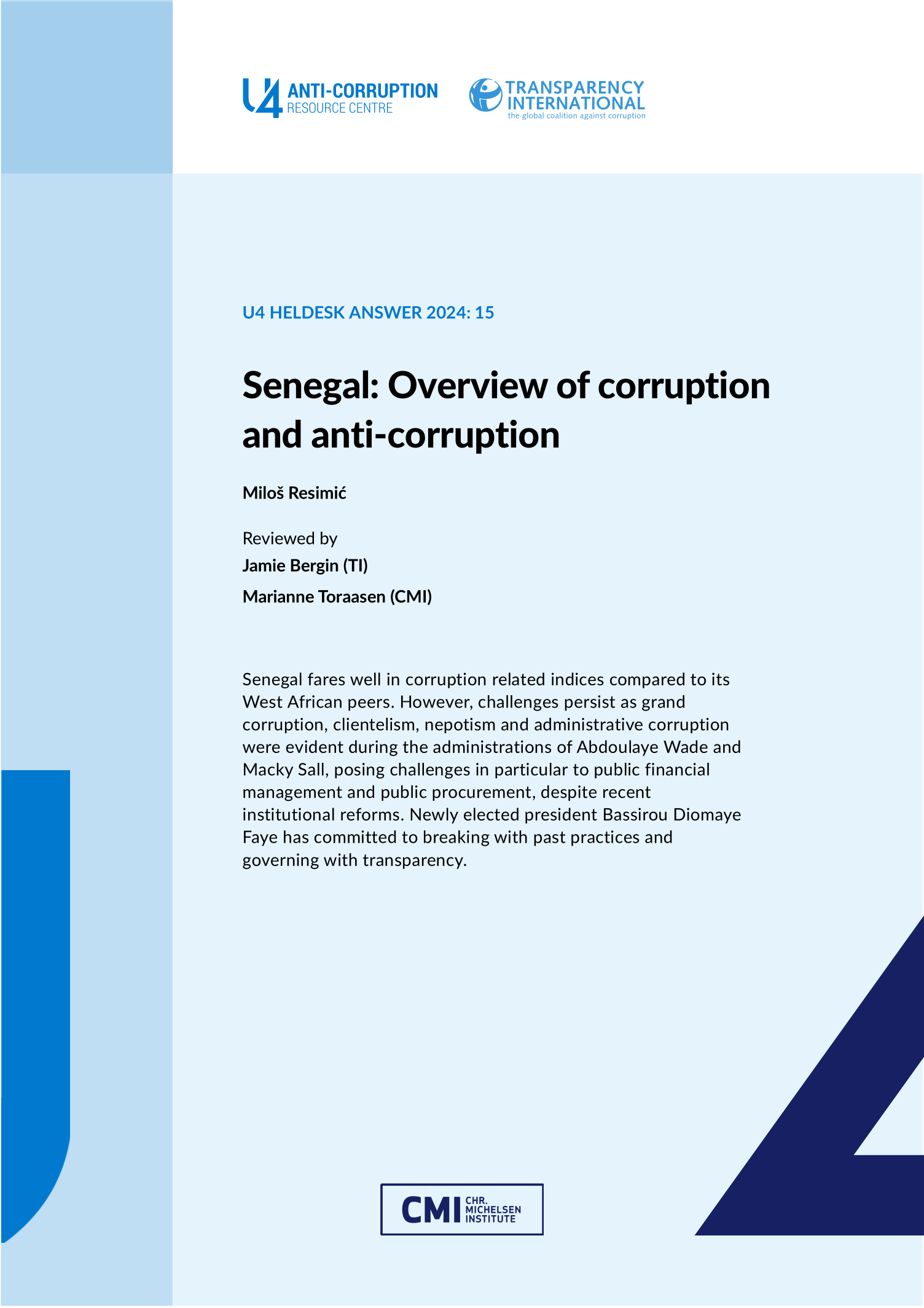Main points
- Senegal fares comparatively strongly in West Africa with regards to estimated levels of corruption, albeit facing setbacks over the past ten years.
- However, evidence indicates grand corruption, clientelism, nepotism and administrative corruption all affect Senegal.
- Sectors vulnerable to corruption include public services and lower level government administration being vulnerable to bribery, while there is a suggestion that the judiciary facilitates politically motivated persecutions, including on corruption grounds.
- There are risks that public procurement processes are captured for the benefit of politically connected companies and individuals.
- Senegal’s public financial management cycle is undermined by insufficient budget transparency and gaps in legislation.
- Anti-corruption forms an important part of the political discourse with the newly elected president Bassirou Diomaye Faye committing to governing with transparency.


